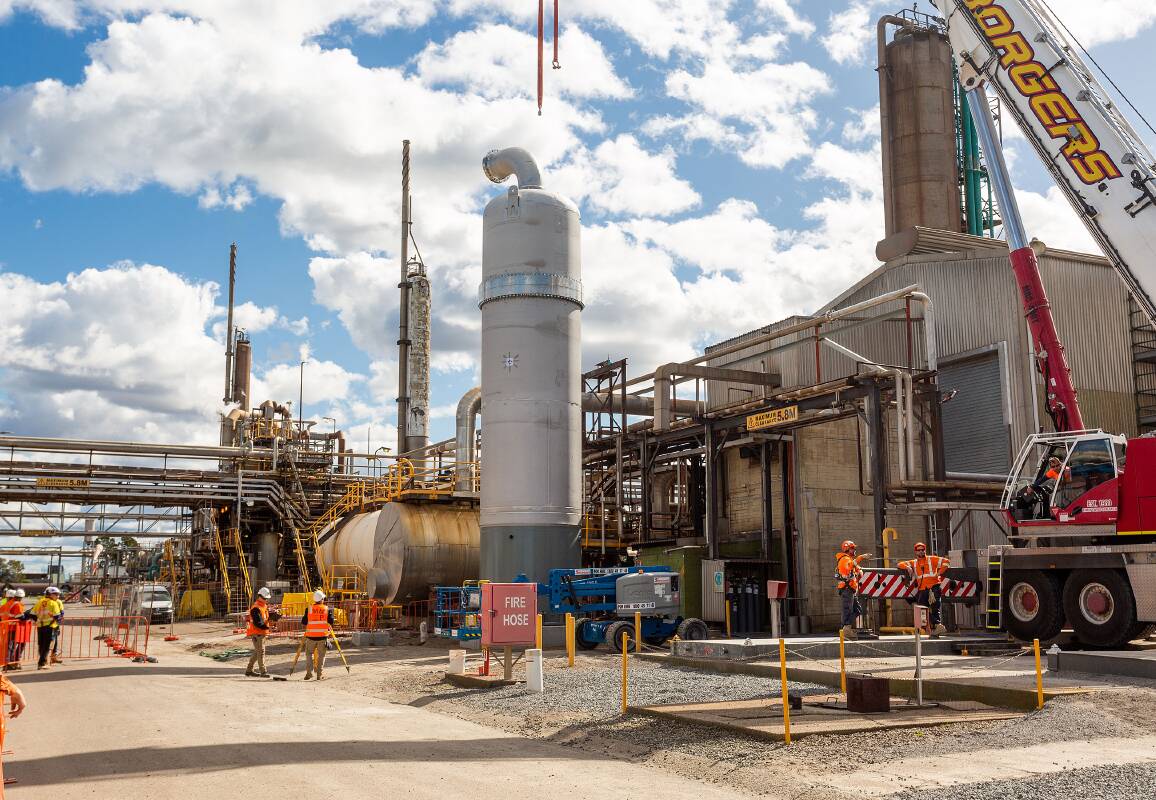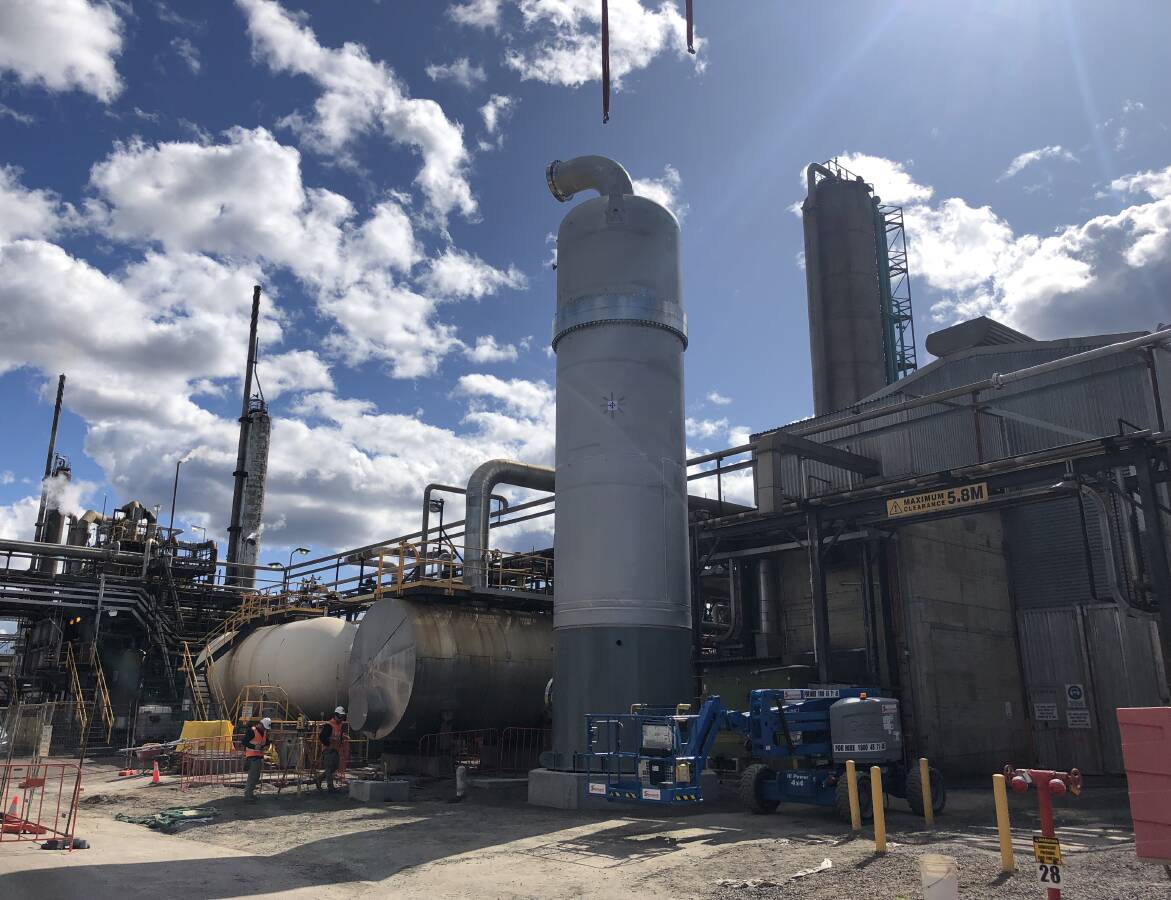
ORICA says a federal Department of Climate Change decision to "retrospectively" change the rules on carbon credits is a "brick through the window" of its Kooragang Island facility, where it is threatening to suspend the installation of emissions reduction technology.
Orica executive Paul Evans used the description when outlining a dispute between Orica and the federal government, which was reported the Australian Financial Review and confirmed yesterday by the company.
Orica's Kooragang Island plant and its facility at Gladstone produce much of the ammonium nitrate used as an explosive in the mining industry.
The Kooragang plant is one of the biggest greenhouse gas emitters in Australia, sitting near the top of a list of more than 200 big emitters covered by Labor's changes to the emissions "safeguard mechanism".
Orica says it had worked up a seven-year scheme with the Clean Energy Regulator, in which it agreed to install emissions capturing equipment at six nitric acid plants installed at Kooragang and Gladstone.
For reducing its emissions, Orica would accumulate Australian Carbon Credit Units or ACCUs, at the rate of one credit for every tonne of Co2 equivalent "abated" by the technology.
The federal government is still finalising the way the safeguard mechanism will work from its July 1 starting date, and the AFR reported that the agreement with Orica would have enabled it to sell the ACCUs back to the government at a price of between $15 and $18 each.
Orica says Labor's proposals mean it can count the greenhouse gas reductions from the equipment it's installed, but it will not be paid for the certificates, as previously agreed.
"The government's argument is that the payments to Orica once the safeguard mechanism reforms are established would be a form of double-counting as the company would be able to create credits for beating its baseline and sell them to facilities that fall short," the AFR said yesterday.
A Senate committee examining the Safeguard Mechanism (Crediting) Amendment Bill is due to report on Monday.
In a submission to the inquiry, Orica said the "possibility of retrospectively limiting deemed surrender [of the carbon credits] if applied, will send a concerning message to would-be investors in Australia".
"We need to ensure any retrospective aspects of the do not unfairly penalise Orica for investing early in real action on climate change," Orica told the Newcastle Herald.
"While we support the intent of the Bill, we expect further changes to be made to ensure any unintended punitive measures be addressed."
In its Senate committee submission, it said: "Orica led the chemical industry in Australia in setting corporate emissions reduction targets; to reduce operational scope 1 and scope 2 emissions by at least 40 per cent compared to 2019 levels.
"As of the end of the 2021-22 financial year our Scope 1 and 2 net emissions totalled 1,883 ktCO2-e, which represents a 14 per cent reduction compared to 2019 levels.
"In 2022, Orica also set target to source 100 per cent renewable electricity by 2040 with an interim step of 60 per cent by 2030."

To see more stories and read today's paper download the Newcastle Herald news app here.







